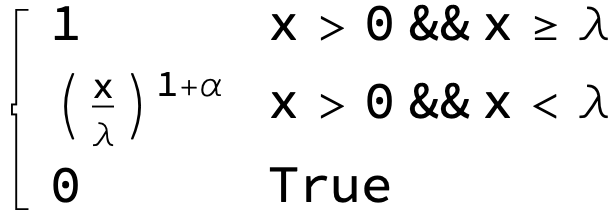i want to write this function
dist = ProbabilityDistribution[{(x/\[Lambda])^\[Alpha]}, {x, 0, \[Infinity]}, Assumptions -> {\[Lambda] > 0 && \[Lambda] > x, \[Alpha] > 0}]
data = {2.8, 1.8, 3.2, 5.0, 2.4, 4.8, 2.9, 2.9, 2.3, 3.2, 2.3, 2.0, 1.9, 3.3, 4.4, 6.7, 4.3, 1.9, 2.2, 3.3, 2.1, 4.0, 2.0, 3.1, 3.8, 3.1, 3.2, 3.4, 2.8, 2.1, 3.1}
mle = FindDistributionParameters[data, dist, ParameterEstimator -> {"MaximumLikelihood", Method -> "FindMaximum", MaxIterations -> 10000}]
but no result show
it' show like pic below

please anyone can help me




ProbabilityDistributiondoesn't look like a PDF. $\endgroup$